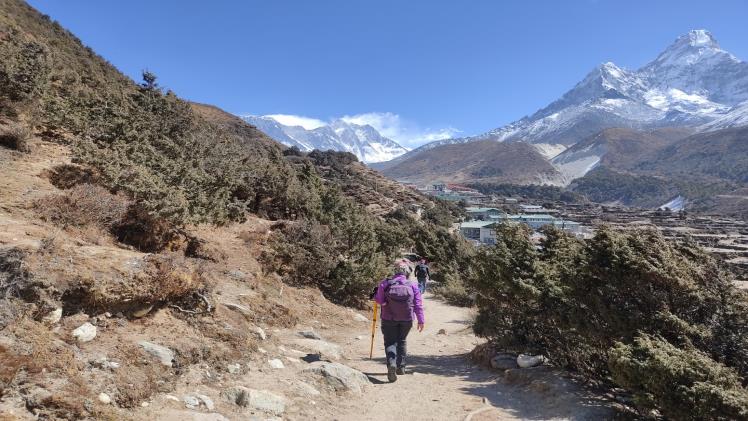10 Inspiring Benefits of Active Outdoor Travel for Young Adventurers
In a world dominated by screens, tight schedules, and digital distractions, young people often miss out on the transformative experiences that come from being outdoors and moving through new environments. Active outdoor travel—whether it’s trekking in the Himalayas, cycling through countryside trails, kayaking in a remote river, or camping in national parks—offers a gateway to growth, adventure, and self-discovery.
Unlike passive vacations, active travel challenges the body and mind, encourages meaningful connections, and fosters a deeper understanding of the world. For young travelers especially, these experiences can leave a lasting impact that goes far beyond the photos they bring home.
Here are ten compelling reasons why active outdoor travel is one of the best things a young person can experience.
1. Fosters Physical Fitness and Healthy Habits
Active outdoor travel naturally promotes a healthier lifestyle. Trekking, hiking, cycling, or paddling through natural landscapes requires physical effort, which builds stamina, strength, and overall fitness. Unlike hitting the gym, the movement feels purposeful and enjoyable because every step or paddle comes with a new view or discovery.
For instance, young travelers trekking to Annapurna Base Camp Trek in Nepal gain fitness while walking through stair-filled trails and lush forests. Over time, this kind of activity builds a habit of movement and a deeper appreciation for taking care of one’s body—habits that can carry over into daily life.
2. Strengthens Mental Well-Being
Spending time outdoors is scientifically linked to improved mental health. Physical activity in nature reduces stress, sharpens focus, and boosts mood. The combination of fresh air, scenic landscapes, and a break from technology creates a natural reset for the brain.
Young travelers often find that trekking through mountain trails or kayaking on a quiet lake provides mental clarity and calm. For example, hiking through the peaceful Langtang Valley in Nepal, surrounded by mountains and pine forests, offers a meditative experience that can relieve academic or work-related pressures.
3. Encourages Cultural Exploration
One of the most rewarding aspects of active outdoor travel is the opportunity to explore cultures beyond your own. Unlike traditional vacations that may limit travelers to tourist areas, trekking or cycling journeys often pass through remote villages and communities where authentic interactions are possible.
For instance, hiking the Annapurna Circuit introduces travelers to Gurung, Magar, and Thakali villages, where they can witness local traditions, taste regional foods, and learn about centuries-old ways of life. Engaging with these communities allows young travelers to expand their worldview and develop empathy and cultural curiosity—skills that are invaluable in today’s interconnected world.
4. Supports Local Economies
Active outdoor travel often has a direct, positive impact on the local communities it touches. When travelers stay in family-owned guesthouses, hire local guides, and buy regional products, their money supports the people who preserve these natural and cultural landscapes.
In Nepal, for example, trekking routes like Everest Base Camp and Manaslu Circuit rely on the tourism economy. Young travelers who choose active journeys not only enjoy an authentic experience but also contribute to sustaining local livelihoods. This sense of responsible travel fosters a connection between visitor and host that is both meaningful and impactful.
5. Builds Lifelong Friendships
One of the hidden treasures of active outdoor travel is the opportunity to form deep, meaningful connections with other travelers. Shared experiences—whether it’s crossing a suspension bridge together, enduring a steep climb, or celebrating a summit—bond people in unique ways.
On popular trekking routes like Everest Base Camp or Camino de Santiago in Spain, it’s common to meet fellow adventurers from around the world. Conversations in teahouses, evenings around campfires, and teamwork on the trail often result in friendships that last long after the trip ends. For young people, these global connections are enriching and can even inspire future adventures or collaborations.
6. Develops Resilience and Problem-Solving Skills
Active outdoor travel is full of challenges—changing weather, unexpected obstacles, and long days of physical effort. These experiences push young travelers to step out of their comfort zones, adapt, and solve problems in real time.
Imagine cycling through the countryside and encountering a flat tire, or trekking over a mountain pass while clouds roll in. Overcoming these moments builds resilience and resourcefulness, qualities that are crucial for both personal and professional growth. Treks like the Everest Three Passes Trek or Annapurna Circuit test endurance and decision-making, leaving young travelers more confident in handling life’s uncertainties.
7. Creates a Profound Sense of Accomplishment
There’s something incredibly empowering about finishing a journey that once felt impossible. Reaching the top of a mountain, completing a long-distance trek, or finishing a multi-day kayaking route brings a sense of achievement that boosts confidence.
For young adventurers, active outdoor travel proves that they are capable of more than they imagined. Completing the Mardi Himal Trek or standing at Everest Base Camp provides an immense sense of pride and accomplishment. These victories, though personal, often inspire a mindset of “I can do hard things” that carries into academics, careers, and life decisions.
8. Sparks Environmental Awareness and Stewardship
Spending time in nature often leads to a deeper appreciation of the environment. Witnessing pristine rivers, ancient forests, and snow-capped peaks firsthand makes environmental conservation personal. Young travelers begin to understand the importance of protecting natural resources and minimizing their ecological footprint.
For example, hiking through Sagarmatha National Park in Nepal or Banff National Park in Canada gives young people a front-row seat to the beauty of untouched landscapes. This awareness can inspire future choices, from sustainable travel habits to involvement in environmental initiatives.
9. Provides a Digital Detox and Mindful Living
In today’s hyperconnected world, young people spend countless hours online. Active outdoor travel provides a much-needed break from constant notifications and screens. Days on the trail or water are spent fully present—watching sunrises, listening to the sounds of nature, and connecting with the moment.
Treks like the Upper Mustang Trek in Nepal offer limited network coverage, encouraging travelers to unplug and focus on their surroundings. This digital detox often leads to mindfulness, deeper conversations, and an appreciation for the simplicity of life without constant distractions.
10. Inspires Lifelong Adventure and Personal Growth
Perhaps the most lasting benefit of active outdoor travel for young people is how it shapes their identity and future choices. These experiences plant seeds of curiosity, courage, and adventure that can influence life for decades.
The first trek, cycling trip, or kayaking expedition often sparks a passion for continued exploration. Many young adventurers return home motivated to tackle new challenges, pursue outdoor hobbies, or even build careers in travel, environmental studies, or adventure sports. Most importantly, these experiences nurture personal growth by instilling confidence, resilience, and a love for learning beyond the classroom.
Final Thoughts: Adventure as a Teacher
Active outdoor travel is much more than a vacation—it’s an education, a challenge, and an adventure rolled into one. For young people, it offers the chance to move, explore, connect, and grow in ways that traditional experiences rarely allow.
Whether it’s trekking through the Himalayas, cycling along scenic coastlines, or kayaking in hidden coves, the benefits of these journeys are lasting. They foster fitness, friendships, cultural appreciation, and a deeper connection to the world. Most importantly, they teach that the greatest rewards often come when you step outside, embrace the unknown, and let the outdoors be your guide.
If you are a young traveler—or know one—consider making active outdoor travel a priority. It might just be the adventure that shapes the rest of your life.







